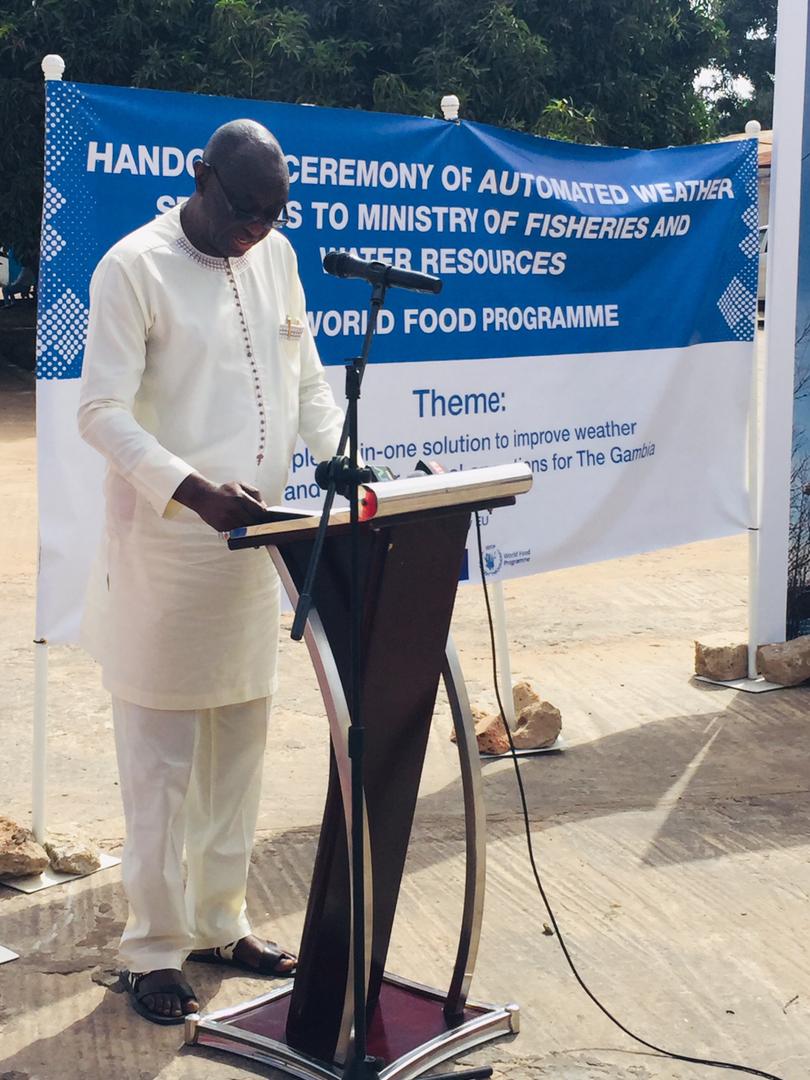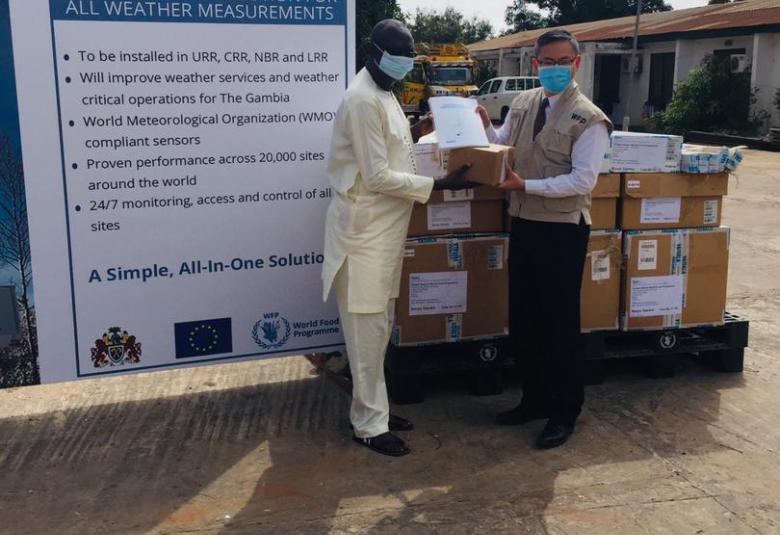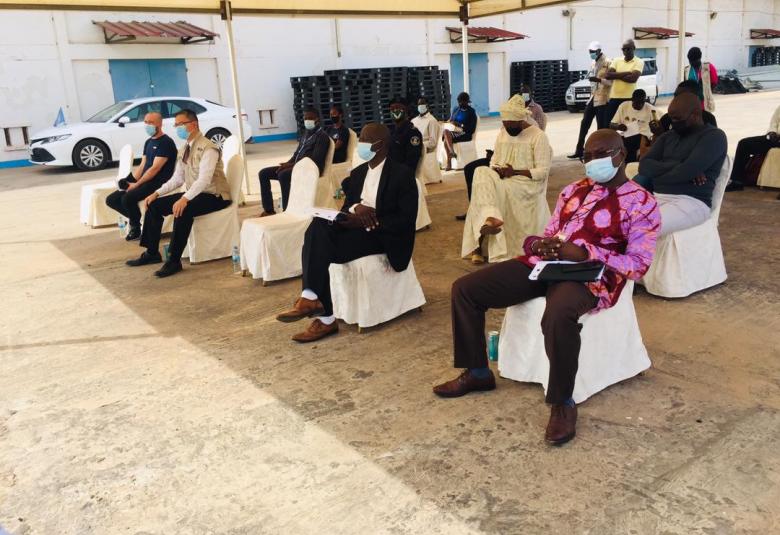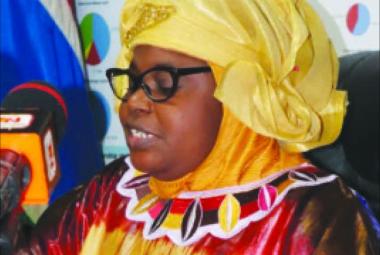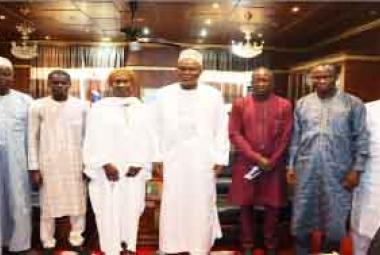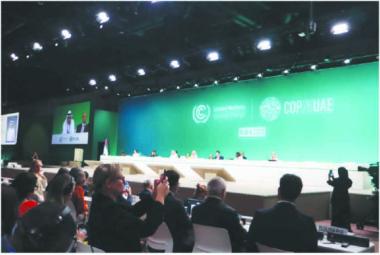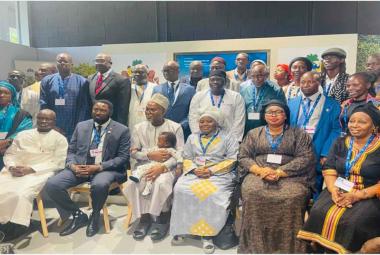The United Nations World Food Programme (WFP) on Wednesday, 30th June 2021, handed over four automated weather stations to the government of The Gambia through the ministry of Fisheries Water Resources and National Assembly Matters (MoFWR-NAMs). This is part of the EU-funded ‘The Gambia agriculture for economic growth and food security and nutrition to mitigate migration’ programme.
Speaking at the handing over ceremony, James F.P Gomez, Minister of Fisheries Water Resources and National Assembly Matters, said this will increase the institution’s capacity in monitoring and forecasting weather and climate.
“MoFWR-NAMs has been strengthening its ability to monitor and forecast weather and climate over a number of years. We have successfully released regular weather forecasts, early warning bulletins, and have set up listening groups throughout The Gambian farmers and citizens to receive more timely and accurate weather information,” he said.
He stated that these four additional weather stations would be located across the country; specifically, in Kerewan, Janjanbureh, Basse and Jenoi.
Hon. Gomez assured that his ministry will be able to increase the accuracy of its forecasts and monitoring, making Gambians better informed. He affirmed that part of his ministry’s mission is to provide timely and accurate weather and climate information to safeguard population and also promote food security.
“The importance of providing this timely and accurate information is critical for all Gambians; so that crops are planted at the appropriate time, to prepare for heavy rains and droughts, as well as to manage high temperatures and humidity that can cause harm to our most vulnerable”.
He expressed gratitude on behalf of His Excellency, Adama Barrow, President of The Republic of The Gambia, to the European Union for funding the project; UN partners for supporting in the implementation, as well as the WFP contracted engineers Vaisala for facilitating the delivery and installation of these stations.
Yasuhirib Tsumura, WFP country representative, reaffirmed their commitment to reaching out to the poorest people; “those who have lost their houses and assets due to floods and windstorms, hungry children attending schools, malnourished mothers and children”.
He went on: “We are focusing our efforts to help the government and people of The Gambia in putting in place a sustainable system to safeguard its own food and nutrition security”.
He noted that The Gambia is vulnerable to seasonal shocks and that these disasters and shocks affect people’s lives and livelihoods; damaging their assets and farmlands, deteriorating food security, and increasing malnutrition in the long term.
Mr. Tsumura explained that this sub component is for improvement of information gathering and dissemination for early warning system, statistics, and market information system.

